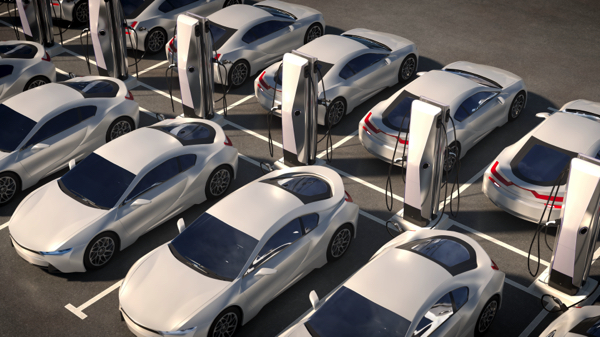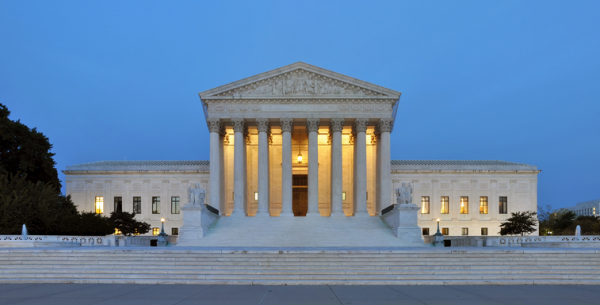 Parler
Parler Gab
Gab
- A cargo ship carrying 800 EVs caught fire, forcing crew evacuation and leaving the vessel adrift as toxic fumes spread.
- Lithium-ion battery fires are nearly impossible to extinguish at sea, releasing deadly gases and polluting the ocean.
- This follows similar disasters like the Felicity Ace, with insurers warning of rising maritime EV fire risks.
- EVs' "clean" image clashes with the environmental damage from battery production, shipping, and disposal.
- Authorities lack solutions, raising urgent safety concerns over transporting volatile lithium-ion batteries.
A floating environmental disaster
The Morning Midas is more than a burning ship; it’s a floating environmental catastrophe. Lithium-ion battery fires produce toxic fumes, including hydrogen fluoride and carbon monoxide, while leaching heavy metals and corrosive chemicals into the ocean. The Coast Guard’s decision to let the fire burn, confirmed by Petty Officer First Class Shannon Kearney, underscores the near-impossibility of extinguishing such blazes. This mirrors the 2022 sinking of the Felicity Ace, which took 4,000 luxury cars including Porsches and Bentleys to the Atlantic floor after a two-week inferno. Insurer Allianz warns that such incidents are escalating, with ship fires hitting a decade high in 2024. "The reality is the risk remains significant due to the size of these ships and the complexities involved in firefighting and salvage," Allianz stated in its 2025 safety report.The lithium-ion time bomb
Electric vehicles are marketed as clean alternatives to fossil fuels, but their lithium-ion batteries are inherently volatile. When damaged or overheated, they enter "thermal runaway," a chain reaction that releases intense heat and toxic gases. At sea, saltwater corrosion exacerbates the risk, as seen in the Morning Midas fire. Meanwhile, the shipping industry remains ill-equipped to handle EV cargo. Unlike gasoline fires, which can be smothered, lithium-ion blazes require specialized suppression systems. Most vessels lack these, leaving crews helpless. Zodiac Maritime, the ship’s operator, admitted the crew initiated emergency firefighting procedures, but they failed to contain the flames.The myth of "green" transportation
Proponents of electric vehicles ignore the environmental toll of their production and transport. The Morning Midas was packed with Chinese-made EVs destined for Latin America, where over 60% of Mexico’s electric car sales in 2023–2024 came from China, according to the International Energy Agency. This globalized supply chain fueled by coal-powered factories and diesel-burning ships is anything but "clean." Now, the Pacific is paying the price. The burning wreck will spew particulate pollution equivalent to thousands of diesel trucks, while battery chemicals poison marine life. The Dutch Safety Board recently demanded better emergency protocols after a 2023 freighter fire killed one and injured crew members. Yet the industry continues to prioritize profit over safety, packing ships with untested battery technologies. Rear Admiral Megan Dean of the Coast Guard praised the rescue effort but offered no solutions for preventing future disasters. The Morning Midas will likely sink or be scuttled, joining the Felicity Ace as a cautionary tale.The high cost of "green" hypocrisy
The Morning Midas fire exposes the lie of "emission-free" transportation. Electric vehicles may not pollute while driving, but their production, shipping, and disposal create environmental nightmares. From toxic fires to exploited labor in lithium mines, the EV industry’s sins are mounting. This disaster should force a reckoning. It is time to confront the dangers of lithium-ion batteries and reject the false narrative that EVs are inherently "green." Until then, the Pacific will keep burning. Sources for this article include: ZeroHedge.com NYTimes.com USAToday.com APNews.comSalmonella outbreak sparks 1.7M egg recall amid persistent food safety concerns
By Willow Tohi // Share
Billionaire-funded bank faces backlash for lending to illegal immigrants using tax ID workaround
By Willow Tohi // Share
Digital pacifiers: How screens are rewiring children’s brains and fueling a mental health crisis
By Lance D Johnson // Share
Supreme Court rejects Mexico’s lawsuit against U.S. firearms manufacturers
By Ramon Tomey // Share
Governments continue to obscure COVID-19 vaccine data amid rising concerns over excess deaths
By patricklewis // Share
Tech giant Microsoft backs EXTINCTION with its support of carbon capture programs
By ramontomeydw // Share
Germany to resume arms exports to Israel despite repeated ceasefire violations
By isabelle // Share










